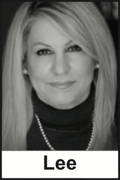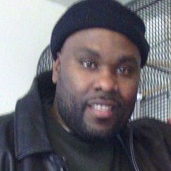Rascals case in brief
In the beginning, in 1989, more than 90 children at the Little Rascals Day Care Center in Edenton, North Carolina, accused a total of 20 adults with 429 instances of sexual abuse over a three-year period. It may have all begun with one parent’s complaint about punishment given her child.
Among the alleged perpetrators: the sheriff and mayor. But prosecutors would charge only Robin Byrum, Darlene Harris, Elizabeth “Betsy” Kelly, Robert “Bob” Kelly, Willard Scott Privott, Shelley Stone and Dawn Wilson – the Edenton 7.
Along with sodomy and beatings, allegations included a baby killed with a handgun, a child being hung upside down from a tree and being set on fire and countless other fantastic incidents involving spaceships, hot air balloons, pirate ships and trained sharks.
By the time prosecutors dropped the last charges in 1997, Little Rascals had become North Carolina’s longest and most costly criminal trial. Prosecutors kept defendants jailed in hopes at least one would turn against their supposed co-conspirators. Remarkably, none did. Another shameful record: Five defendants had to wait longer to face their accusers in court than anyone else in North Carolina history.
Between 1991 and 1997, Ofra Bikel produced three extraordinary episodes on the Little Rascals case for the PBS series “Frontline.” Although “Innocence Lost” did not deter prosecutors, it exposed their tactics and fostered nationwide skepticism and dismay.
With each passing year, the absurdity of the Little Rascals charges has become more obvious. But no admission of error has ever come from prosecutors, police, interviewers or parents. This site is devoted to the issues raised by this case.
On Facebook
Click for earlier Facebook posts archived on this site
Click to go to
Today’s random selection from the Little Rascals Day Care archives….
Click for earlier Facebook posts archived on this site
Click to go to
Today’s random selection from the Little Rascals Day Care archives….
Child sex trafficking: 21st century’s moral panic?
 Aug. 21, 2013
Aug. 21, 2013
“Some advocates have suggested secure facilities for America’s child sex trafficking victims…. Such facilities force troubled children into a system of care that may be just as exploitive as with a pimp/trafficker.
“Countless women continue to seek restitution for the sexual abuse by employees assigned to supervise them while in detention in the ’60s and ’70s – some of these women have children fathered by detention employees….
“So then why do we talk about secure facilities for child victims of sex trafficking? Because ‘sex is at issue’ in their victimization….
“Child sex trafficking is not the first social issue to create moral panic around physical and sexual abuse. In the ’80s, Satanic Ritual Abuse garnered self-proclaimed experts, national media attention, law enforcement mobilizations, federal funding, excitement and hysteria. By the ’90s official investigations produced no evidence of widespread conspiracies and only a small number of crimes were verified….”
– From “Residential Programs for America’s Child Sex Trafficking Victims: Secure or Non-Secure Facilities?” by Dr. Lois Lee, founder and president, Children of the Night, at Huffington Post (July 9, 2013)
UNCG professor showed no tolerance for skepticism
 Feb. 13, 2012
Feb. 13, 2012
“It is evident that, although mistakes were made in the handling of the (Little Rascals) case, these children definitely were sexually abused by one or more individuals at the day care center. To suggest otherwise is to revictimize these smallest victims.
“As a professor of social work at UNCG whose specialty is child abuse, I would like the public to be aware that research has shown that 97-99 out of 100 children who report that they have been sexually abused are telling the truth. When a child tells you that an unauthorized adult is ‘playing doctor’ with him/her, it is highly likely that he/she is describing some sort of abuse.
“If you do not believe the child, you become part of the victimization of that child. If you believe that detection and prosecution of child abuse cases are witch hunts, then you protect child molesters and allow them to continue to traumatize children. I cannot imagine that the responsible people of this state want to put themselves on the side of criminals who abuse children.”
Elisabeth Porter Hurd, Greensboro
– From a letter to the editor of the Greensboro News & Record, June 9, 1997
Does Dr. Hurd still believe that the Little Rascals children “definitely were sexually abused”? And that to doubt the prosecution’s case was to “protect child molesters and allow them to continue to traumatize children”?
Last week I asked Dr. Hurd whether she might have changed her mind – so far no response.
Immunity of office allows zeal, recklessness to go unchecked

longform.org
Ariel Levy
June 29, 2016
“Compensation is intended in part as a deterrent: a municipality that has to pay heavily for police or prosecutorial misconduct ought to be less likely to allow it to happen again. But it is taxpayers, not police or prosecutors, who bear the costs of litigation and compensation. Prosecutors enjoy almost total immunity in cases of misconduct, even if they deliberately withhold exculpatory evidence from a jury. A 2011 Supreme Court ruling also made it virtually impossible to sue a prosecutor’s office for such violations….”
– From “The Price of a Life: What’s the right way to compensate someone for decades of lost freedom?” by Ariel Levy in the New Yorker (April 13, 2015)
To “deliberately withhold exculpatory evidence” seems all too neatly illustrated in Bob Kelly’s trial. Here’s how the North Carolina Court of Appeals described the prosecution’s actions:
“Judge L. Bradford Tillery, a pretrial Judge, directed the State to file and present for in camera review identifying information, medical and psychotherapeutic files and DSS files with respect to the ‘indictment children’….
“In apparent compliance with Judge Tillery’s order… the State turned over a box of files to the trial court, Judge (Marsh) McLelland presiding. The box contained, inter alia, complete medical notes and therapy notes on the 29 indictment children, 12 of whom testified at defendant’s trial and 17 of whom did not….
“After trial, defendant’s appellate counsel went to the Office of the Clerk of Court for Pitt County to view the exhibits. He opened several boxes containing trial exhibits, none of which were sealed. One of the boxes contained 29 files labeled with the names of the indictment children…. Defendant argues that the files contained undisclosed information that would have been material to the defense.”
To wit, the withheld files were bulging with exculpation – conflicting claims, evidence of hysteria, eyewitness testimony that nothing happened.
Prosecutors H.P. Williams Jr., Bill Hart and Nancy Lamb walked away rebuked by the Appeals Court but otherwise unpenalized. How differently might the Little Rascals case have unfolded had they known their recklessness wouldn’t be shielded by prosecutorial immunity?
![]()
View from inmate: DAs build ‘careers on the backs of us innocent prisoners’

freelorenzojohnson.org
Lorenzo Johnson
July 29, 2016
“Sometimes prosecutors withhold exculpatory evidence of a defendant’s innocence, and don’t turn it over until they are forced to. Take a look at the exonerations reported in recent years and you will see a pattern of prosecutors continuing to fight against our release even when our innocence is uncovered. Many innocent prisoners have been buried alive in these prisons by this kind of corruption….
“How do the culprits sleep at night? Well, to be honest, these people have no consciences. It’s like any other day at the job for them. Some have built their careers on the backs of us innocent prisoners, and now they sit in high places.
“Until the day comes when culprits responsible for wrongful convictions are held fully accountable – wrongful convictions will never stop.”
– From “When Courts Are Used As A Weapon Against The Innocent” by Lorenzo Johnson at Huffington Post (July 12)
Johnson had served 16 1/2 years of a life-without-parole sentence when in 2012 the Third Circuit Federal Court of Appeals found insufficient evidence for his conviction. He remained free for four months, after which the U.S. Supreme Court unanimously reinstated the conviction and ordered him back to a Pennsylvania prison. He continues to seek a new trial.
![]()











0 CommentsComment on Facebook